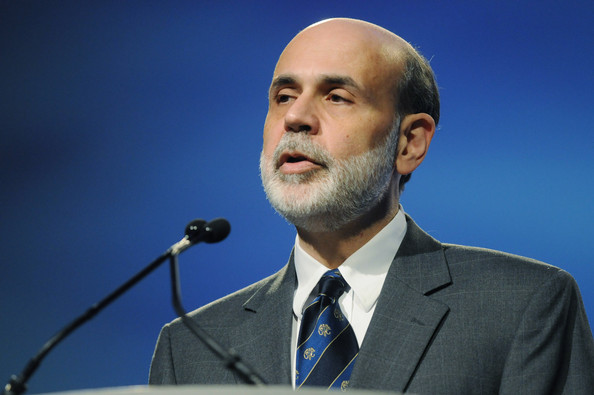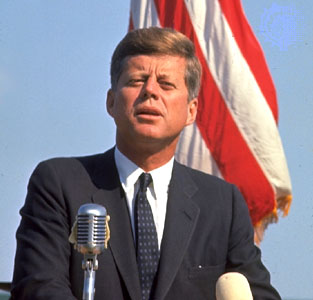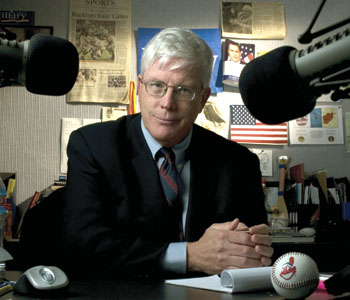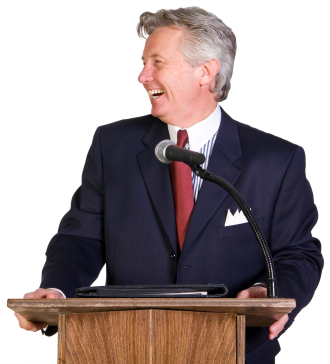Communication Breakdown In a Global Market
“If it was easy, everyone would be doing it.” I’m not talking about NBA basketball. I’m talking about the challenges of communicating with customers who don’t speak English. Or Millennials trying to talk about Medicare with someone 40 years older.
In this article on Target Marketing, Daniel Burstein, describes this problem on many levels. He’s not joking about the challenges of language and cultural differences. Daniel warns against using humor at all. This always sound advice when it comes to public speaking. Most people won’t get the joke. Others will be offended. The rest will be laughing and texting it to an associate.
Get Your Marketing Team Fluent in Your Customers’ Language
Perhaps your ideal customer speaks English and your marketing team does, as well.
Or you have an international customer base and your marketing team has English and Spanish speakers in the Americas, but French, German, Dutch and Hebrew in EMEA — then Mandarin and Korean in APAC.
So you think you have this language thing covered. Far from it. Getting translations right for an international audience is only the beginning. Your marketing team must also be fluent in the customer’s trade language, mental levers and word preferences — all lingua francas that exceed national boundaries.
…
For marketing leaders, the first step is being aware of the role language can play in subconsciously signaling to your customers that your brand and solution are a right fit for them.
The next step is increasing your marketing team’s “fluency.” This can be especially challenging when members of your team are in a significantly different demographic than your ideal customers (for example, Millennials marketing Medicare, which is unintentionally alliterative) or come from a different industry (marketing is marketing, but B2C luxury property marketing is a different language than B2B enterprise software sales, a lesson I learned early in my career).
Read the rest of the article here:
Language challenges come with marketing opportunities. Master the language differences and your global customers will thank you for it. Of course, if you run a local business in Los Angeles, you may have customers speaking a dozen languages.
Just remember the K.I.S.S. principle: Keep It Simple Shopkeeper. It means you have less to translate and lessons the risk of offending someone.
Should Ben Bernanke Join Toastmasters?

Yes, absolutely! For 90 years, Toastmasters has helped people become more effective public speakers and leaders from all walks of life. Even former Chairmen of the Federal Reserve System.
Ben is off to a good start in his new career as a former Fed Chairman. This week Reuters reported that Ben earned a cool quarter of a million dollars for his first speech since leaving the Fed. You can read all about it here.
Bernanke enjoys ‘fruits of free market’ with first post-Fed speech
The article points out that he earned as much for his 40 minute speech as he earned in a full year as Fed Chairman. Not a bad start. Of course, this is pre-tax so he’ll need to do a second speech to pay the taxes on the first one.
Ben Bernanke earned more in 40 minutes on Tuesday than he made all of last year as head of the U.S. Federal Reserve.
Bernanke was paid at least $250,000 for his first public speaking engagement, in Abu Dhabi, since stepping down in January, according to sources familiar with the matter. That compares to his 2013 paycheck of $199,700, and the appearance was only the first of three around the world this week.
Toastmasters teaches folks how to speak in a clear, concise and compelling manner. With some effort, perhaps Ben could cut this speech down to 30 minutes. This would allow more time for questions and answers and even allow Ben to enjoy a free lunch at his host’s expense.
What You Can Learn from JFK About Public Speaking

I don’t know of anyone who was born a great public speaker. In fact, most people can’t put two words together when they’re born. President John F. Kennedy was no different. He learned how to be a memorable public speaker. Read this article by copywriter and author John Forde and you’ll improve your public speaking as well.
What JFK Knew: Six Secrets You Should Know Too — by John Forde
A little after 12:30 in the afternoon, a young woman fed her seven-day-old son. They were, in fact, just two days home from the hospital.
Like a lot of young mothers, she was just then coming to grips with how much her life had already changed — when it changed again.
That was my mother and brother, on the day Kennedy was shot. Where was I? Not even an idea yet.
But growing up Irish Catholic… in definitively Democratic Philadelphia… there was no debate: Kennedy, we were all taught, had been a hero.
These days, you might not have to look too hard to find people who question that assessment. I’m pretty sure, in fact, a few would love to tear down that version of history.
But even they might have to agree, if there was one thing about Kennedy — other than his family money and his weakness for Hollywood starlets — it’s that the guy sure could deliver a great speech.
And what is a speech, dear reader, but a format-test on a kind of persuasive sales piece?
Think about it…
Kennedy knocked the cover off the ball with his “Ask not…” inaugural address. It’s been called the best inaugural speech ever given.
Kennedy did it again with “Ich bin ein Berliner,” delivered to thundering applause in West Berlin.
He also famously used words to undo the Cuban missile crisis. Not a shot was fired.
And then there’s that time he challenged America to walk on the moon, “because it’s there,” delivered in a speech he gave to the graduating class of Rice University.
The examples could go on.
But, as we close in on tomorrow, the 50th anniversary of Kennedy’s assassination, I’ll bet there are a few things you didn’t know. For instance, according to historian Robert Caro, Kennedy wasn’t always so great at the pulpit.
Says Caro…
“[Kennedy’s] early speeches… were read from a prepared text with all the insecurity of a novice, in a voice ‘tensely high-pitched’ and “with a quality of grave seriousness that masked his discomfiture . . . He seemed to be just a trifle embarrassed on stage.”
Once, goes the story, Kennedy was so nervous about forgetting a speech while he was running for Congress, his sister Eunice stood in front of the stage, mouthing the words to help him remember.
That changed with practice on the campaign trail. It also changed when Kennedy started working with his great speechwriter, Ted Sorensen, who became Kennedy’s wingman (and possibly more, though Sorensen always insisted otherwise) on all those Kennedy “moments” we still talk about now.
What also made a big difference, according to Sorensen and many others, was that Kennedy and his writing team mastered six powerful secrets rhetorical persuasion — all six of which seem worthy of using in your sales copy writing, too.
Which six? Per the BBC, Kennedy’s secret sauce drew largely from the following list…
1.) The Power of Contrasts, as in Kennedy’s famous line, “Ask not what your country can do for you, but what you can do for your country”
2) The Power of Threes, especially in lists, like in the Kennedy line, “Where the strong are just, and the weak secure and the peace preserved.”
3) The double-punch you get by combining lists and contrasts together, as in the line, “Not because the communists are doing it, not because we seek their votes, but because it is right.”
4) The Apt Application of Alliteration, as you see (and hear) in a line like Kennedy’s, “Let us go forth to lead the land we love.”
5) The Pull of Powerful Imagery, like he gave us in the simple phrase, “The torch has been passed to a new generation of Americans.”
6) The Simple, Sensible Secret of Knowing Your Audience. Kennedy’s was the first inaugural speech delivered to a global audience, in real time. And he (and Sorensen) made sure everybody knew it, with no fewer than six lines that directly addressed allies and enemies overseas.
Again, this isn’t just for speechwriters… or Presidents. These are tricks you can lean on too. Just something to think about, as the airways echo Kennedy’s words on the big day tomorrow. . . .
I’ve read John Forde’s articles for years to learn more about the art and science of copywriting. You can learn more about effective writing effective ads by signing up for his free e-newsletter. You’ll get $78 worth of free gifts as John’s way of saying thanks. http://copywritersroundtable.com
Picture credit: © Arthur Rickerby—Black Star/PNI
Don’t Let a Heart Attack Stop Your Seminar!

Audience interaction keeps your presentations interesting and lively. This is especially true for living trust seminars. You never want to be the only one doing ali the talking.
Yet this story pushes things to an extreme when a man had a heart attack during a lecture on heart disease. Thankfully the story has a happy ending.
LEWISTON — Dr. William Phillips figured he was being kidded when a lecture on coronary heart disease was interrupted by a man complaining of chest pain.
A moment later, the cardiologist and nearby nurses saved the man’s life.
“I can’t tell you how I was hoping that guy was going to open his eyes, because, I thought, nothing could be worse if he dies right here,” Phillips said Tuesday.
As Phillips and the nurses began CPR, more than 100 people, many with histories of heart problems, watched.
“What I’m hoping is that they got the lesson about calling 911,” he said. “They got to see firsthand the importance of immediate response.”
The lecture had begun in the usual way.
Folks gathered Monday evening in a conference room at 12 High St. beside Central Maine Medical Center. The topic was a comparison of bypass surgery versus stenting for heart patients.
“We were talking about angina and this man raised his hand and said, ‘I’m having it right now,'” Phillips said. “I said, ‘Are you kidding?’
“And he said, ‘No.'”
That’s when Phillips got serious.
“I said to one of the nurses, ‘Could you get a wheelchair and take him over to the emergency room?'” Phillips said.
There wasn’t time, though. The man collapsed and Phillips ran to his side.
“In the meantime, he had completely arrested,” the doctor said. “He had no pulse. He wasn’t breathing. We started CPR and everybody’s standing around.”
Three cardiac rehab nurses — Brenda Robitaille, Nicola Adams and Heidi Langois — were there, too.
“It wasn’t just me,” Phillips said. “If I had been alone, it would have been terrible.”
One of the nurses brought in an automated external defibrillator, a portable electronic device that diagnoses a sudden, life-threatening heart problem and shocks the heart back into rhythm.
“The AED saved his life,” Phillips said.
“Then, (paramedics) came in the door,” he said. “They started an IV. They gave him an EKG and took the patient over to the emergency room.”
Later, Phillips checked in on the man.
“I went over to the emergency room, and he was sitting up in the bed, talking with his wife and waiting for test results,” the doctor said. Central Maine Medical Center declined to identify the patient, citing confidentiality laws.
But before Phillips checked on the man, he had a lecture to finish.
“After we had taken a breather, everybody wanted to continue on with the talk,” he said. “It was a pretty impressive event. I think the people there will remember the lecture for that.”
Phillips hopes the attendees will remember the importance of rapid response to heart problems.
Source: http://www.sunjournal.com/city/story/1052780
You may not save someone’s life during one of your presentations. So you won’t make the national news like this story. Yet you can help save family’s financial lives with a timely and informative community seminar.
Should You Tell Jokes at Marketing Seminars?

Should you tell jokes during your marketing seminars? This can be a risky venture. You want to be LIKED and TRUSTED by your seminar attendees so they will take the leap and schedule a first meeting.
If your jokes aren’t funny you risk being liked. If your jokes are deemed offensive, you definitely won’t be liked. You might ask, “How hard can it be to come up with some funny jokes about retirement planning, living trusts, or wills and joint tenancy?”
“I love money. I love everything about it. I bought some pretty good stuff. Got me a $300 pair of socks. Got a fur sink. An electric dog polisher. A gasoline powered turtleneck sweater. And, of course, I bought some dumb stuff, too.” — Steve Martin
I spoke today about telling jokes with a member of one of my local networking groups. Irv sells Aflac insurance policies and once took a stand-up comedy course in Southern California. He said that you need to write 100 jokes to get 10 worth trying out. Out of the 10 jokes you might get 1 which would be worth repeating. That’s one in a hundred.
Irv told me that comedians usually tell 3 jokes per minute. So a 5-minute comedy routine would include 15 jokes from 1500 jokes written up! Now you know why comedians like Jay Leno and David Letterman have a team of joke writers to come up with enough funny jokes for each night’s monologue.
Irv told me in the old days, a vaudeville comedian could come up with 20 funny jokes. These jokes would work for decades as the vaudeville troupe traveled from town to town. Not any more in these days of YouTube and Facebook. Funny comedy routines go viral and are everywhere.
Thankfully, your seminars won’t be recorded and your audiences will be different every time. You won’t need fresh jokes for every seminar. Find ones which work and use them over and over again.
I know one estate planning attorney who has told the same jokes for more than 20 years! He tells every audience that he has “never seen a hearse pulling a U-Haul trailer” and he gets laughs every time. He tells it more like a story anyways so audience doesn’t really need to “get it” and laugh on cue. No one gets offended. No one gets embarrassed. And he gets attendees to like him and sign up for a first meeting.
My general recommendation is to tell stories not jokes. Don’t poke fun at anyone but yourself. And never tire of telling the same stories over and over. Your goal is to get new clients and not get a job as a stand-up comic. A funny joke which bores you is way better than a fresh one-liner which offends someone in your audience. And that’s no laughing matter!
How To Use Radio Advertising To Get Known As An Expert

Radio advertising is a great way to get known in your community as an financial expert and promote your upcoming events.
Your ad must lead with a attention grabbing headline to get the listeners’ interest. This keeps them from changing the station or just mentally tuning out.
Beware of letting your ad rep write your ad. Their goal is to sell ads and that’s their main skill. They may or may not be able to write ads which help you. Remember that the ad costs the same regardless of how it performs. You want a “direct response” ad so you know if your ad pays for itself or not. These type of ads include a very simple way for listeners to contact you, like an easy to remember website address or super easy phone number (for example, 334-555-7777). The most effective direct response ads repeat the website address or phone number at least 3 times in the commercial to enhance recall.
The time and cost of producing a radio commercial is far below the cost of producing an equivalent length television commercial. And if an ad doesn’t work you just record another one. Most radio stations include free production as part of your advertising buy, which includes both the copywriting and voiceover assistance.
You must choose your radio station carefully. The listening audience’s demographics must match your target market. Not your taste in music. A great ad on the wrong station won’t build your practice. Look for stations that have a large number of financially qualified listeners; some radio stations can supply you with that specific research data, especially in larger metropolitan areas. You can also reasonably assume that stations that program a format that appeals to an older demographic will in general terms be more likely to utilize a financial planner, as opposed to stations that target listeners in their teens and 20’s. Formats that perform especially well with a more affluent audience of adults over the age of 45 include news, talk, oldies, jazz and classical stations.
Radio consultant and station owner Burke Allen from Allen Media Strategies recommends that you always negotiate with the station account executive. “Electronic media sales reps tend to have quite a bit of flexibility with their per spot rate and placement so don’t accept the first thing that is offered to you.”
The two main categories of radio stations are commercial and noncommercial.
Commercial Radio Stations
Commercial radio stations play all kinds of music which appeals to all ages and social classes. As I mentioned earlier, the demographics of commercial radio vary widely so choose your station wisely.
Radio spots are typically 60 seconds long which is about 250 to 300 words. 60 seconds is plenty of time to create an effective advertisement. Remember to start out strong to keep your listeners attention.
Best to use the radio station staff to record the commercial especially when you’re promoting a seminar or other event. You want to be positioned as a financial expert not a used car salesman. “CFP” does not stand for “Certified Financial Pitchman”!
You can be the star if you use an interview format. You provide valuable information so people see it as a mini-radio show rather than a commercial. They pay attention and don’t change the channel. Here’s a simplified version of a commercial using this format:
- The announcer begins with an introduction of you and your firm. “Time for today’s Money Minute with certified financial planning professional Bob Johnson.” This acts as the headline of the ad.
- The announcer asks you a quick question, “Today’s question is ‘Does a will help me if my husband gets Alzheimer’s?’”
- You provide a clear and concise answer: “No. Wills only go into effect upon death not disability. If your husband was mentally disabled, you would need to go to court to set up a guardianship. This is costly, time-consuming, and embarrassing. Many couples avoid this problem with a living trust.”
- The announcer closes the ad with a call to action, “For a free report on estate planning essentials, call Bob Johnson of Johnson Wealth Management at 555-666-7777.” The announcer should include your USP if time permits. Remember to have them repeat your contact information at least three times to enhance recall.
Noncommercial Radio Stations
Public radio stations tend to program either a News/Talk format or classical/jazz/world music. These formats appeal to older and more affluent audiences. You won’t advertise, of course, you’ll be a “supporter”of noncommercial radio. In recent years, public radio stations have expanded what supporters can say about their businesses. For example:
“Bob Johnson and Johnson Wealth Management support the arts community and Jefferson Public Radio. With systematic planning and proven strategies, Bob Johnson helps families prepare for all stages of life from college savings accounts, to funding a busy and vital retirement, to handling long-term care needs. You can reach Bob in his Medford office at 555-666-7777.”
Listen to your local public radio station and get a feel of what they allow. Don’t be afraid to push the envelope. Somebody has in the past and you might as well push it a bit further. Perhaps they’ll allow a community announcement like this:
“Bob Johnson and Johnson Wealth Management support the arts community and Jefferson Public Radio. On Tuesday, July 5th, Bob Johnson will be holding a community seminar to help individuals and couple learn how to avoid probate and minimize estate taxes. For more details and an invitation, call Bob Johnson in his Medford office at 555-666-7777.”
These underwriter announcements are short and to the point, and are helpful not “salesy”. They work best if recorded by a well-known and well-liked station announcer, but are often read live at public stations.
When should your ads run? Morning and afternoon drive times are the most listened to time on radio, as about 70% of radio listening happens in-car. I helped one advisor who had a 15 minute “Financial Forum” every business day at 8 a.m. This time slot worked great. Another preferred time might be the noon news hour if the station has a large at-work listenership. Not all times are the same in terms of listening levels so try to get the best times possible.
In all cases, ask for a log of when the spots ran along with the spot name if you have several different ads running. You must know which ads are working and which ads need to be dropped. If you run ads on more than one station you may find one station works substantially better than the other. In that case, drop the loser and double-up on the winner.
Speaking At Local Events and Clubs

Another great way to get noticed in your community is to volunteer to speak at community clubs, schools, and other events. Every community has Rotary club meetings, square dance clubs, local colleges, seniors groups and retirement homes. You can find potential clients at these events and establish yourself as an expert in your field. These organizations look for new speakers to educate their members during their weekly or monthly meetings.
Your prepared words should never exceed two-thirds of your time slot. Never go over your time limit and always allow time for questions and answers. So a lunch meeting might require 15 to 20 minutes of prepared words plus some time for questions and and answers.
You can choose either a timeless topic or a timely topic. Timely topics include what’s happening on Wall Street, the latest tax law passed and what the impact might be on the folks in the audience, or the outlook on the economy. Timeless topics include providing for long-term care expenses, saving enough for retirement, and an introduction to financial planning.
These informal talks are great preparation for doing a radio show because you get your comfortable taking questions from the audience and talking in front of a live audience. What happens if someone asks a question you can’t answer? No problem. Just ask them for their name and number and promise to call them that afternoon with an answer. You’ll make points for honesty and get a chance to add that person to your mailing list. And you’ll be ready to answer that question at your next presentation.
You can get lots of names by having a drawing for a door prize. A $25 gift certificate to a local restaurant would be a nice prize. Another way to get names is to mention a free report in your talk. Perhaps your report is entitled, “The 7 Most Common Retirement Mistakes” and your talk only has time for the first 3. Just ask folks to take your card and call your office for a copy of the report.
What if you can’t fathom the thought of speaking in public? I recommend joining a local Toastmasters group.
At Toastmasters, you’ll improve your public speaking with good coaching and purposeful practice in a low-pressure setting. You’ll get the confidence needed to begin doing community talks at clubs, community seminars, and some day a radio show. You’ll improve how you communicate with a couple sitting in your conference room.
You’ll also meet other high achieving business owners, salespersons, and professionals at your Toastmasters meetings. These folks want to be more effective on the job and more successful in life. You’ll get to know these people as you work together to learn an important, and to many folks, terrorizing skill: Public speaking.
Get Your Own Radio Show For Advisor Marketing Success

Getting a local radio show is a great way to get known in your community as a financial planning expert. Let’s look at the “6 C’s” of having your own radio show:
Contact. A radio show gets you in contact with hundreds or thousands of prospective clients all at once. You build chemistry, establish yourself as an expert and as brave. Not many folks would like to be put on the spot every day or every week. Your clients will enjoy hearing you on the radio and will brag on you so you’ll get more referrals.
Content. Now you’ve gotten a radio show. So what do you talk about? You could do a series of topical shows on various investing and planning areas. You could do a few shows on explaining common investment jargon. You could answer listeners’ questions. The questions could be sent in by email, folks could call your office with questions or you could take them live on air. What do you do if someone asks you a question you can’t answer? No problem, just say, “Great question. Let me do a bit of research and come back tomorrow with a complete answer.” Listeners will appreciate that you admit you don’t know it all. Live Q&A is best and you can do it after you’ve done several shows.
Counsel. You need to give general advice only. You can’t give specific advice because you don’t have the facts of their personal situation. This is a good reason for them to visit you in your office. You also need to be careful not to provide tax or legal advice. Share some air time with your lawyer and CPA and you might see some more referrals down the road.
Controversy. Be especially careful when a listener asks a political question. Your opinion might alienate half your audience. Remember most elections are decided 51% to 49%. Many listeners (and potential clients) will be adamantly opposed to socialism while equally adamant against any cuts to Social Security or Medicare! Emphasize personal responsibility and not wanting to be dependent on the government in your old age. You can take stronger positions when it comes to financial planning matters. Why? Because you are an expert and should know certain planning approaches are better for “most people.” Example, “For most people who own their own home and have over 100,000 in financial assets, estate planning with a living trust is a better option than relying upon a will.”
Cost. Small towns have smaller audiences so the cost is less. One advisor I help pays $1000 per month for a 15 minute Financial Forum show every business day. Another advisor pays $250 per hour for a one-hour weekly show in a big city. In both cases, they get some advertising spots and can cross-promote their seminars and other events.
Communication. You must learn to be clear, concise, and confident when you talk on the radio. Speak in plain English or people will tune you out! And toss in a bit of humor to be more likable and approachable. Imagine you’re speaking to just one person and you’ll be more effective (and less nervous).
How do you get started? Talk to your best clients and find out which radio stations they listen to. Contact these stations and speak with the station manager about starting your own radio show. Whether you do a 3-minute “Money Matters” or a 15-minute or one-hour “Financial Forum”, you can use radio to build chemistry and trust with thousands of people while establishing yourself as an expert in your field.
UPDATE: My friend Burke Allen has over 20 years in PR and the radio industry. He put together a program called Get Your Own Radio Show to help individuals get started in radio.
Increase Seminar Attendance With Free Bonuses
You can get more folks to your seminar with free bonuses. These bonuses can include autographed copies of your book or a free initial consultation with an estate planning attorney or a tax analysis or a portfolio review. Even the offer of free door prizes can help build attendance.
Event Check Off List for Seminar Success
You’ll be more relaxed and do a better seminar when you use a check off list for your event.
Before your event, make a list of everything you’ll need for your event. This can include items for your literature table such as brochures and business cards. You’ll have equipment like your laptop computer, your pointer, and your projector. How about an extension cord? You’ll also want things near you at the podium such as a glass of water and a pad and paper to take notes.
During your event, jot down items you wish you had so you’ll remember to bring them the next time. After the event, update your list so you’ll be a bit better prepared the next time.
